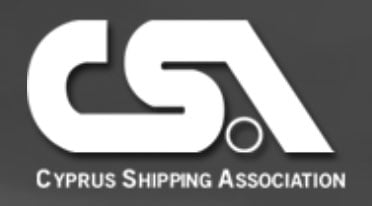
ENVIRONMENTAL POLICY
Salamis Lines Ltd is committed to preventing pollution, saving energy, contributing in carbon reduction and protecting the sea . Strict standards and procedures are set for environmental protection and pollution prevention onboard the fleet of the company.
1. We have imposed slow steaming for all vessels in order to reduce emissions.
2. We ensure that the vessels we operate comply with, and whenever possible, surpass all applicable international, national, and local requirements, laws, rules and regulations regarding environmental protection. All of our vessels are equipped with International Oil Pollution certificates, Air Pollution certificates and Hazardous Materials certificates.
3. Our vessels are equipped with SOPEP (Shipboard Oil Pollution Emergency Plan) emergency materials.
4. Salamis Lines Ltd has a zero-tolerance policy for intentional and illegal disposal of oil at sea.
5. Bunkering operations are made under the constant watch of a responsible officer in order to prevent oil pollution. Bunkering operations are conducted in accordance with respective vessel’s procedures. The quality of the bunkers received is always checked with sample analysis by specialised laboratories.
6. Propeller and hull cleaning: In order to prevent bio-fouling that can increase fuel consumption and emissions, Salamis regularly cleans ship’s propellers and hulls.
7. All Salamis Lines’ vessels are fitted with Ballast Water Treatment Systems. BWTS are regularly tested and maintained by licensed specialists.
8. Anti-fouling paints: Only environmentally safe anti-fouling paints are used to coat ships to prevent sea life such as algae and molluscs.
9. Vessels are strictly required to adhere to all procedures relating to bilge water and waste oil management. In addition, all of our ships are equipped with sludge and bilge water collecting tanks and with a certified bilge water system.
10. Garbage: Vessels are equipped with a Garbage and recycle Management Plan . Onboard training takes place to ensure that all crew members are aware of the requirements for proper garbage management.
It is our policy to provide marine transportation services with safety and efficiency. Through management review we assess the adequacy, effectiveness and suitability of our management system periodically, including our stated policies and associated objectives, to ensure that these targets are met.
11. Mediterranean Sea becomes a SOx ECA from 1 May 2025, as amended by IMO Resolution MEPC. 361(79), will prohibit ships operating within the Mediterranean Sea ECA from using fuel oils with a sulphur content exceeding 0.10% m/m. This regulation is anticipated to significantly reduce air pollution levels in the Mediterranean region and its coastal states offering considerable benefits to both human health and the environment. The new limit will mean that all ships operating in the Mediterranean will need to either switch to burning 0.10% sulphur fuels, or to switch to Marine Gasoil, or to install and use scrubbers or to use LNG. Based on the above Salamis vessels will comply with the new regulation by using Marine GASOIL 0.1% low sulphur.









